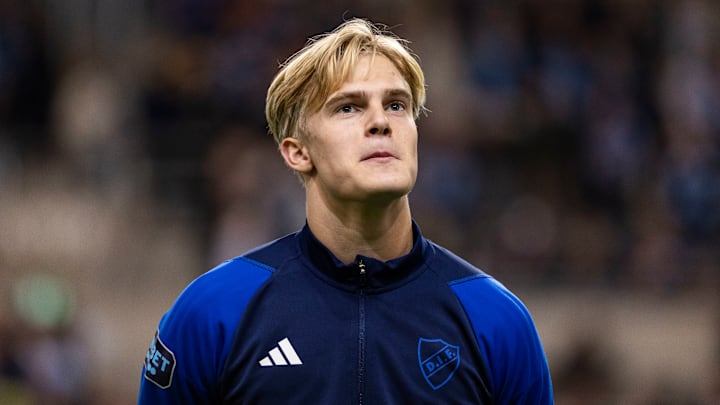Lucas Bergvall. Radu Dragusin. Archie Gray. These are the first of many young, capable players scouted by Tottenham's new technical director, Johan Lange. Upon his appointment to the role in October 2023, Lange overhauled the recruitment structure and scouting department. He is a big believer in data analytics, using them to find players that not only fit the head coach's tactics but also a team-friendly price tag. These signings mentioned above, only one of which is over age 20, have been lauded as some of the best young footballers in Europe. Now the question begins: will this data-driven approach pay off in the long run?
Lange hasn't been in charge of Spurs's recruitment for too long, but it's safe to say he inherited a mess. Fabio Paratici, the former director of football for Spurs and Juventus, was banned by FIFA for false accounting during his time at the Italian superclub, but not before he brought in high-profile young players like Dejan Kulusevski, Rodrigo Bentancur, and Cristian Romero. Paratici had largely relied on a collection of scouting he had done previously at Juventus, tapping into his connections in Serie A (Destiny Udogie, Ivan Perisic). Paratici was also willing to target the best talent outside the Premier League's Rich 7 clubs (Richarlison, Yves Bissouma) and some lesser-known prospects across Ligue 1, La Liga, and the Bundesliga (Pape Matar Sarr). For the most part, Paratici's recruitment has worked out, as all players mentioned are critical for Tottenham.
Lange's approach is different. He and his scouts have utilized a calculated set of data to identify the players who work within Ange Postecoglou's style. They are also attuned to the club transfer policy, which prioritizes young players with room for growth. Experienced players like Timo Werner have been brought in as well, but on short-term deals, though Werner has returned on loan again for the 2024-25 campaign.

Before joining Spurs, Lange held the same role at Aston Villa, and he largely tailored the squad for Steven Gerrard and Unai Emery, respectively. He is responsible for signing key players like Ollie Watkins, Matty Cash, and Emi Martinez. It seemed to work for Villa, who finished 4th and qualified for the Champions League for the first time since 1983. The question is can Lange's approach work at a club with more resources and large aspirations?
Spurs's transfer record in the past five/six seasons has been...mixed. Calling it poor would be extreme, but calling it good would be disingenuous. There have been a few hits: all the Serie A signings have been great, even with some dips in form. Romero has emerged as a top-ten defender in the world. Richarlison improved substantially after his rough first season, as did Bissouma, but both have gone through slumps. Giovani Lo Celso, though, hasn't lived up to the £55 million price tag Spurs paid for in 2019. Tanguy Ndombele, signed in the same summer as Lo Celso, has barely played a football match in three years and is still Tottenham's club-record signing. Ryan Sessegnon was undone by injuries. Bryan Gil was swapped for fan-favorite Erik Lamela and failed to make the bench at times in his Tottenham career. The team is still searching for a true heir to Harry Kane. James Maddison and Brennan Johnson were two solid homegrown purchases last summer, but they were streaky and plagued by injuries last year.
It's no secret Tottenham's lack of depth was their undoing last season. They couldn't keep up the momentum after a strong start and a lack of competition for starting spots caused stagnation. Depth signings have always been part of Tottenham's previous recruitment problems, and it was highlighted the most during the COVID-ravaged 2020-21 season. There was also when Spurs's former head of recruitment Steve Hitchen made the infamous "I hate it" remarks about transfer deadline day. To many fans, that moment showed the club had no ambitions or desire to truly improve, especially as results started to falter and injuries to key players piled up.

Lange's approach seems to be addressing this, and doing so without overpaying. The latest deal for Gray signifies the data-driven scouting is telling them to go after highly-coveted young players while using the influence of Ange to sway them to join the project. It's no secret that the chance to play European football in the Europa League next season will help attract players looking to make that next step. But fans are going to want more than just romanticism in transfer signings. They want results. They want a trophy.
This "Moneyball" scheme has worked in English football several times with varying degrees of success. Leicester City is probably the best example when their 2015-16 title glory was done with a shoestring budget and signed unknown players that became household names (Jamie Vardy, Riyad Mahrez, and N'Golo Kante). More recent examples are Brighton, who use analytical software applied to betting software to find value signings that blossom into world-class talent. Brentford, whom Tottenham beat out for Gray's signature, has used a similar strategy, but it hasn't been as effective for the West London club.
Tottenham is not Brighton and Brentford, though. The club has a massive amount of money and will only make more as the stadium hosts concerts and NFL games. They can afford to spend more on higher-rated players, and Lange's scouting can find the best, medium-value talent. The development of these players is always a big question mark, but Postecoglou has been able to get the best out of players in difficult times. If Bergvall, Dragusin, and Gray can turn into a new generation of ballers, Lange's approach will be hailed as revolutionary. We'll have to see how it plays out on the pitch first.
